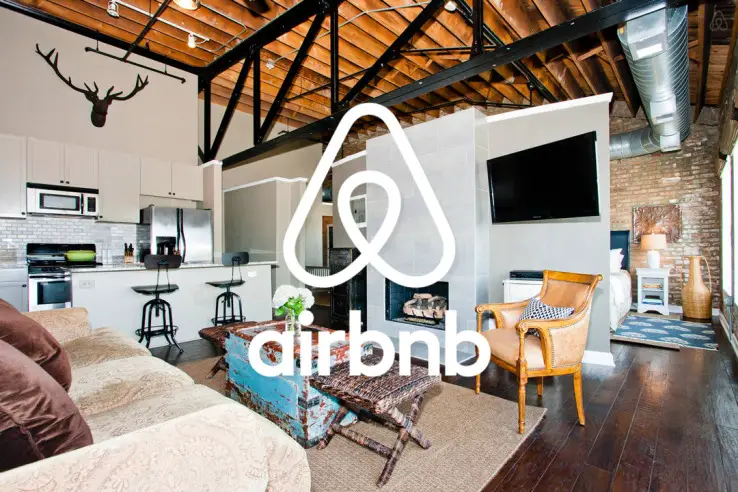With the fall semester coming to a close next month, I know that most of us are in the midst of planning warm, sandy getaways on the shore or cool, milder escapes from the sun. While the destination may not be the same, I think we can all agree on one thing: Being a college student and going on vacation are not always things that happen simultaneously. Some parents might eagerly help us pay for textbooks, but asking for a vacation loan is just not practical.
Not all hope is lost! There are ways to afford a great vacation and still have money left to get yourself through spring semester without having to eat cup noodles for dinner every night.
Before you shell out (can you tell how desperate I am for a beach?) hundreds of dollars for that big-ticket hotel and conveniently timed flight, here are some tips on how to make the most of your money.
1. Keep an Open Mind on Location
Did you specifically want French Polynesia, or were you just looking to go somewhere with a few good beach days? If you’ve only got $500 to spend on a vacation, Bora Bora is probably not your best bet, but a budget like that could get you to Mexico or Honduras with no problem.
Sometimes being dead-set on a vacation spot can be really bad for your funds, especially if you already have shallow pockets. The cheapest getaway won’t come to you if you’re reluctant to explore other options—when you’re open-minded about the destination, you’re bound to find some fantastic deals waiting for you. Generalizing your vacation to “a good time with a cold drink on the beach” versus “a good time with a cold drink on Matira Beach in Bora Bora” is definitely going to be better in the long run.
I really wanted to go to Greece next month, and I was rigid in my argument to make it happen, but with some encouragement to look for a place more accommodating to my own shallow pockets, Puerto Rico seemed more and more like an ideal vacation spot. The whole trip—transportation and lodging, so far—has come to be about $500.
2. Using Airbnb as a Resource
Airbnb is your mightiest tool in the search from some grade-A lodging. I already know what you must be thinking: “Well, Airbnb is basically Craigslist, and I’ll probably get ripped off.” That’s a big, hearty NO. There’s a reason behind that indescribable sense of impending doom you get when someone you know wants to buy a pair of Air Jordan’s from some guy (who, mind you, wants the money wired before your unsuspecting friend even sees the shoes) off Craigslist.

Craigslist—save for the “Casual Encounters” postings, which are much more candid than you ever wanted—is a mess of false advertisement and stolen appliances. Who propagates that? The people behind this incredibly plain, incredibly facile website. There are people looking to scam you left and right with postings falling under some slipshod guise of authenticity—if the deals are too good to be true, they’re probably not good at all.
Such is not the case with Airbnb, so don’t put your residual anger from that failed Air Jordan exchange on such a stellar resource. Airbnb has a crap-ton of certifications in place: Click on any given listing and, like the magic and magnificence you’ve never experienced on Craigslist, you’ll find information on the host, verified photographs and reviews from people who’ve previously rented out the listing.
While some listings might seem like an extraordinary mirage or some superficial attempt to con you out of your money, and most of them do, Airbnb goes through a lot of security measures to make sure you and the host are resting easy.
When I booked a place to stay for my trip to San Juan, Puerto Rico, I read and re-read the same reviews ten times over, despite the insanely happy and exhaustive reports from previous renters. The free Wi-Fi, air conditioning and cable, along with the other amenities of the apartment seemed, much like a Craigslist deal, too good to be true. The host always had timely answers to my questions, there’s a promised three-minute walk to the beach and this beautiful place was only $65 a night!
My biggest fear—someone abducting me from the home I’d rented and torturing me in some filthy, sulfur-scented cellar—is silly and unfounded at best, but I’ve seen “Hostel,” and Eli Roth is not going to make a mockery out of me. I think I’ll be able to rest assured with twenty-one satisfied reviews and a solid five-star rating.
3. Know When and Where to Book Your Flight
In case you needed to be reminded, travelling by plane can be really expensive. The flight alone is one thing, but then you’ve got bullshit baggage fees, minor fare charges and God forbid you have to cancel or reschedule your flight. Do you know how many times I’ve had to unpack and repack my bags just to avoid paying extra for them? If you think that passersby don’t look into your suitcases while you’re knelt over at the luggage check—desperate, panicked and frantically forcing all of your underwear into your bag—you’re very wrong.
“Compare” is the magic word when searching for plane tickets. Google has this cool new flight booking service, aptly named Google Flights, to compare airline prices. Google Flights is nifty in that it sources ticket information from American Airlines, JetBlue, Delta and other domestic and international airlines. It works like Expedia, except there are no extra booking fees. And what other service is going to give you flight and date tips to help you save money, when everyone else wants to cheat you out of it?
Google Flights recommends things like return dates, which are usually one day sooner than you’d have planned, to get you the best deal possible. Choose your outbound and return flight with Google, and it’ll direct you to the airline’s website to book. Google has evolved into much more than cat pictures and online homework help.
The day you book your flight also has a huge impact on how much you’ll end up paying. Fare Compare recommends flying on Tuesdays, Wednesdays and Saturdays to save money. So, if you can avoid it, don’t fly out or fly back on Fridays or Sundays. And you know how everyone hates to wake up at early o’clock—still slobbery and bleary-eyed from four hours of sleep—to catch a flight? Those are the best times to fly. Flights at the break of dawn can be exhausting, and no one ever willingly wants to board a red eye flight (I think enough of us have seen “Red Eye” to keep booking flights for lunchtime hours), but you’d be surprised at how much money you could save.
In the end, I can’t really tell you what to do. For all I know, you’ll go off after this and spend $400 a night for a vacation in Bora Bora, and that’s spending much more than you need to for a good time.

















